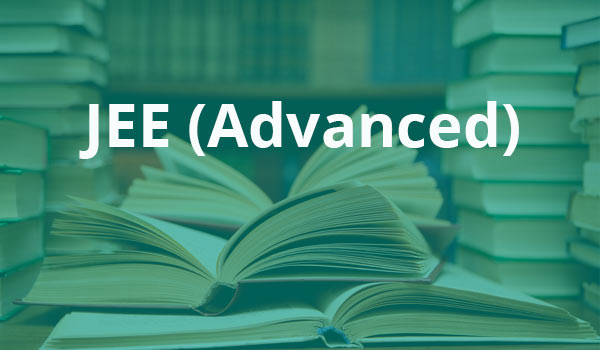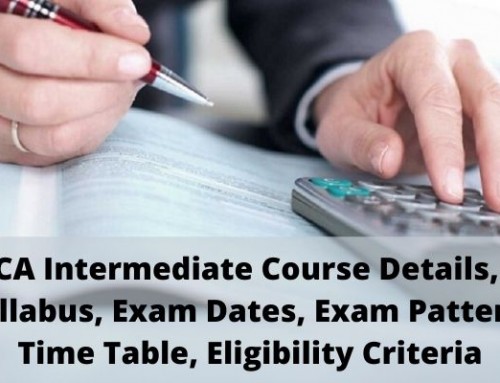Introduction to JEE Advanced
JEE Advanced is one of the most awaited and toughest exams occurring every year in India. JEE Advanced is guided and controlled by Joint Admission Board (JAB). The exam is conducted by the zonal IITs and hence it is often referred as IIT JEE Advanced examination. Aspirants who want to apply for JEE Advanced must clear the JEE Mains cut-off. Candidates who clear the JEE Advanced exam get the opportunity to be an esteemed part of the 16 IITs of the nation or ISM. Candidates get the choice to opt for a bachelor degree program or integrated Master/Dual degree program.
JEE Advanced 2016 Eligibility Criteria
The year 2016, brought a new pile of challenges in front of the JEE aspirants. As usual, the JEE Mains was tougher than the last year and the results of the Mains examination decided the fate of millions of aspirants. First 1, 50,000 Mains qualifiers were chosen to apply for the JEE Advanced based on the CML –
- For General Category – 50.5%
- OBC (Non-Creamy Layer) – 27%
- SC- 15%
- ST- 7.5%
Age Limit
- For General/OBC (NCL) – Aspirants must be born after Oct. 1, 1991
- For SC/ST/Pwd – Aspirants must be born after Oct. 1, 1985
Important Topics
Maths – Mathematics paper generally worries the JEE Mains & Advanced aspirants. However those who follow a smart but constant regimen and strategy during the JEE preparation, succeed for sure in the exam. The basic pillars of the JEE Advanced Mathematics are Differential & Integral Calculus and Algebra (complex numbers, quadratic equations, AP, GP and HP, Permutation & Combination, Binomial Theorem, complete matrix section, 3D analytical geometry and Vectors). These are the parts of Mathematics from where a JEE Advanced aspirant many expect numerous and tough questions.
Physics – For Mechanics section, an aspirant must go through relative velocity, projectiles, conservation of linear momentum and mechanical energy, center of mass, elastic and non-elastic collisions, Gravitational potential and field, Escape Velocity, parallel and perpendicular axes theorems, moment of inertia, Hooke’s law, Young’s modulus, Viscosity, surface tension, Stoke’s Law, Bernoulli’s theorem, Resonance & Doppler Effect.
The General Physics is totally unpredictable and hence one needs to go through what he/she can i.e; from Unit & Dimensions to Resistance.
In Thermal Physics, an aspirant must work hard on Idea Gas Laws (Cv, Cp), bulk modulus, Kirchhoff’s law, Stefan’s law, Wien’s displacement law, Coulomb’s Law, Capacitance, Ohm’s law (series & parallel), heating effect of current, Biot–Savart’s law, Ampere’s law and EMI.
For Optics, the important topics are Huygen’s principle, TIR, Combination of thin lenses and mirrors and double-slit experiment.
Chemistry – For Physical Chemistry, the vital topics are mole concept, oxidation-reduction problems, molarity, molality, normality, ideal gas equation, Kinetic theory of gasses, Bohr’s Model, De Broglie hypothesis, s, p & d orbital shapes and hybridisation, electronic configuration of elements, Aufbau’s Principle, Hund’s rule, Pauli’s exclusion principle, VSEPR model, Enthalpy, Entropy, Hess’s Law, pH and buffer solutions, Le Chatelier’s principle, Electrochemistry, Solid state, Nuclear Chemistry and Chemical Kinematics.
The Organic and Inorganic Chemistry should be prepared completely as per the Official JEE Advanced Syllabus without escaping any part. Candidates are advised to follow the Official JEE Syllabus only and prepare the maximum they can. However the primary parts have been discussed above to reduce the stress a bit.
Result & Top Colleges
JEE Advanced results have been declared on 12th June 2016. The result brought joy and disappointment at the same time for millions.
The appeared candidates can check their results on the Official JEE portal link – http://cbseresults.nic.in/jee/jee_2016.htm
They need to enter their JEE Advanced registration number along with their DOB.
The TOP 3 IIT JEE Advanced RANK holders are –
- Aman Bansal
- Bhavesh Dhingra
- Kunal Goyal
The TOP Colleges after clearing IIT JEE Advanced that one can anticipate include:
- 16 IITs & ISM Dhanbad
- IISc, Bangalore
- IIST, Thiruvananthapuram
- RGIPT, Rae Bareli













